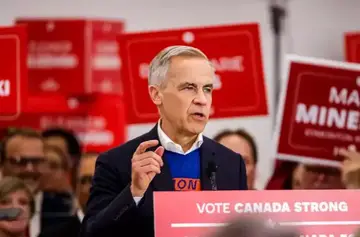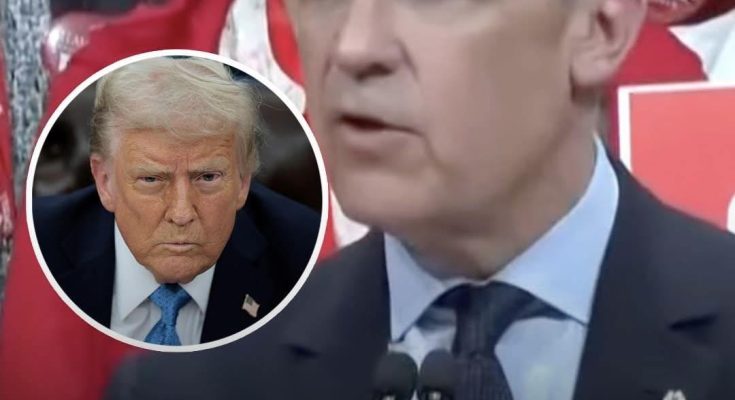Following his stunning election victory, the newly sworn Canadian Prime Minister Mark Carney did not waste time and addressed the boiling political storm that has long cooked between Canada and its powerful southern neighbor, the United States.
With a bold and defiant statement, Carney threw his batch against former US President Donald Trump and accused him of trying to weaken Canadian sovereignty for his own country’s profit.
Carney’s notes raised questions about the future of Canada-U.s. But is it just another chapter in the ongoing dispute, or could it signal a deeper and more strategic tearing that will define another era of North American geopolitics?
The newly elected Canadian Prime Minister Mark Carney did not waste time to support the already tense relationship between Canada and the United States.
In his winning speech after the elections, Carney made a pointed remark about Donald Trump and claimed that Trump “is trying to break us so America can control us”.
“As I warned months, America wants our country, our water, our resources, our country … But that will never happen,” Carney said early in the morning of April 29.
He continued and emphasized the basic changes in the world and stressed that they were not “idle threats”.

Carney’s notes came in response to Trump’s expressed vision that Canada would become part of the United States.
Before the former Canadian Prime Minister Justin Trudeau resigned after ten years, Trump called him a “Canadian governor”.
In leadership in the Canadian elections, Trump tried to influence Canadian voters and published social truth: “Good luck for great people in Canada.”
Trump’s message continued and urged the Canadians to choose a leader who could reduce taxes, increase military power and stimulate businesses such as cars, steel, aluminum, lumber and energy without tariffs or taxes if Canada becomes 51.
“No other artificially drawn line many years ago. Look how beautiful this country would be. Trump added.
Both Prime Minister Carney and his opponent, a candidate for the liberal side of Pierre Poievre, promised to firmly oppose Trump if he was elected.

Trump also claimed that Canada could function as a state because “America spends $ 200 billion per year to subsidize it”.
Carney replied by saying that the Canadians “recovered from the shock of American betrayal” who urged people to “watch out for themselves” and prefer mutual care.
“When I meet President Trump, it will discuss the future of economic and security relations between two sovereign nations, and we will do it knowing that we have many other opportunities to promote prosperity for all Canadians,” Carney added.

He also encouraged Canadians to support the domestic industry and explore everything the country has to offer.
“United, we will win this trade war and build the strongest economy in the G7 – an economy that works for all,” Carney concluded.
In conclusion, the victory speech of Prime Minister Mark Carney clearly determined the tone of his administration’s attitude to the growing tension between Canada and the United States.
His strong conviction of Trump’s ambition to attach Canada and his strong commitment to maintain Canadian sovereignty shows a determined approach to ensuring the interests of the country.
Carney’s call for national unity, economic self -confidence and prioritization of domestic growth reflects his vision for a prosperous future independent of the US’s influence with the future of Canadian relationship with her southern neighbor uncertain that the leadership of Carney is likely to shape the course of the political and economic environment in the country.

